Sullivan's Travels

See more details, packaging, or compare
Synopsis
Director John L. Sullivan (Joel McCrea) is one of Hollywood’s hottest talents, with an uncanny gift for getting audiences rolling in the aisles. But he’s dissatisfied: he wants to abandon comedy for Serious Statements, and buys the rights to celebrated social-realist novel ‘O Brother, Where Art Thou?’
To make his masterpiece as realistic as possible, Sullivan naturally has to understand how the book’s downtrodden characters must have felt, so he takes to the road as a hobo, is taken under the wing of a failed actress (Veronica Lake), and learns several valuable home truths about the importance of not patronising his audience.
Writer-director Preston Sturges had an inspired run in the 1940s, turning out some of the funniest American comedies ever made (The Lady Eve, The Palm Beach Story, The Miracle of Morgan’s Creek). Sullivan’s Travels is one of his best: not just hilarious but also truly wise.
Picture 8/10
Preston Sturges’ Sullivan’s Travels cones to Blu-ray from Arrow, who present the film in the aspect ratio of 1.37:1 on a dual-layer disc with a new 1080p/24hz high-definition transfer. The disc is a UK release and has been locked to Region B. Viewers in North America will require a Blu-ray player that can back Region B content.
It’s beautiful, and easily Arrow’s most impressive presentation yet. It looks like a film, first and foremost, with digital manipulation kept to a minimum. Fine object detail is extraordinary, from McCrea’s decrepit costumes to the various rundown settings and the various textures that appear. Contrast looks spot on, with terrific tonal shifts, and rich black levels that never crush out details.
There are still a few scratches and marks remaining but they are few and far between, the restoration work overall being very thorough. Film grain is fine but remains. Overall it’s just an incredibly beautiful and crisp image, easily one of Arrow’s best.
(April 14th, 2015: I adjusted the grade down from a 9 to an 8 after revisiting the disc while also going through Criterion's new Blu-ray. I still think the transfer is very strong but was probably being a little over-generous when it came to the materials.)
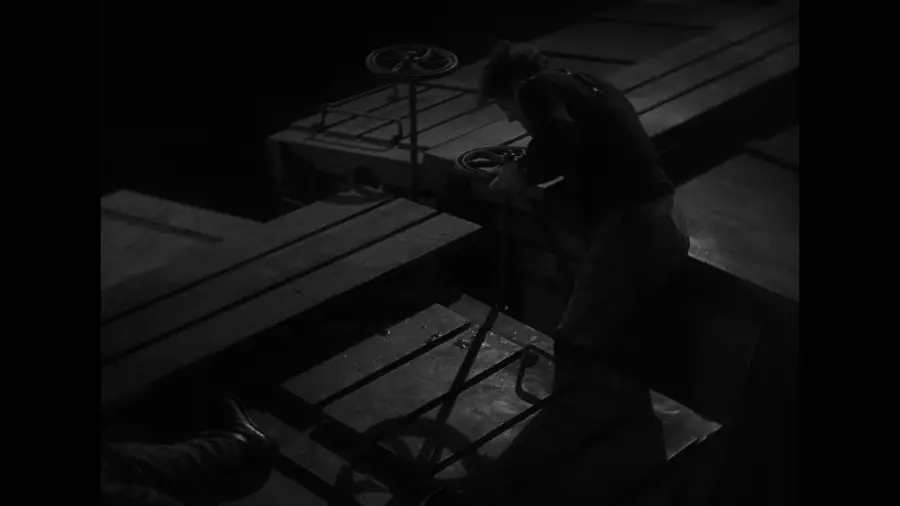
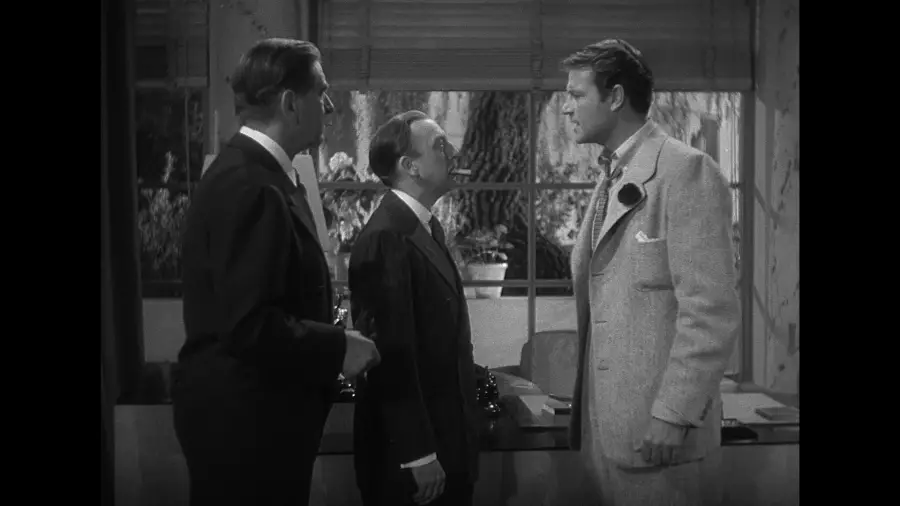




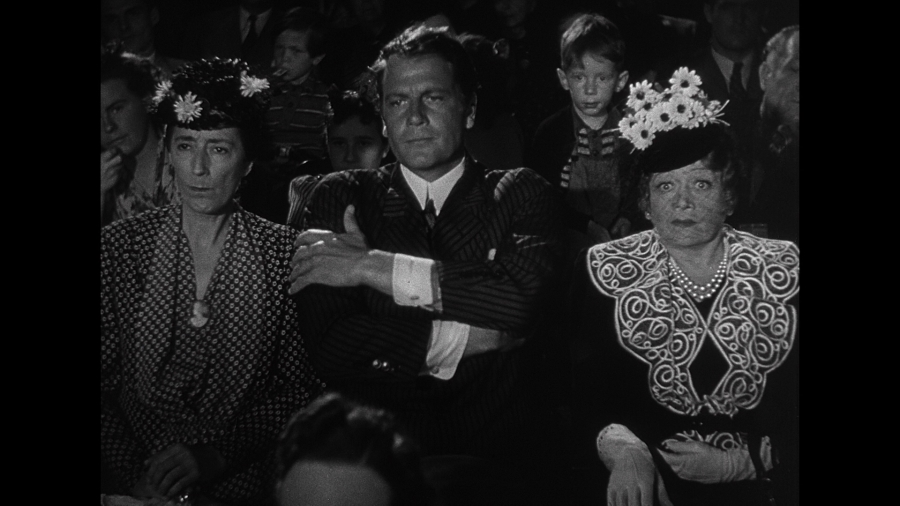

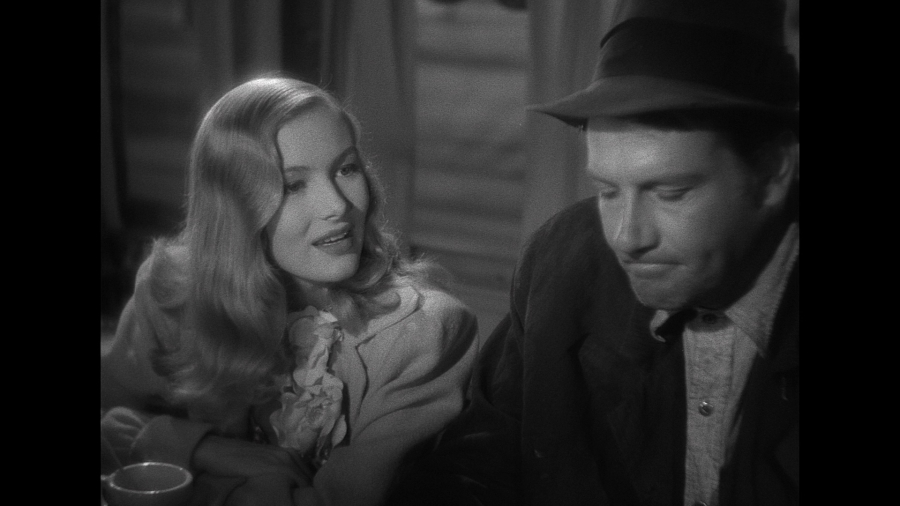



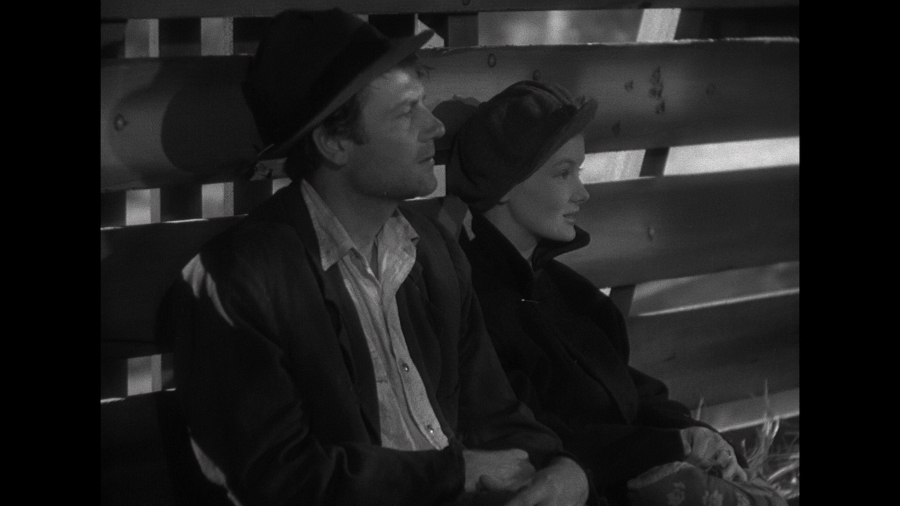
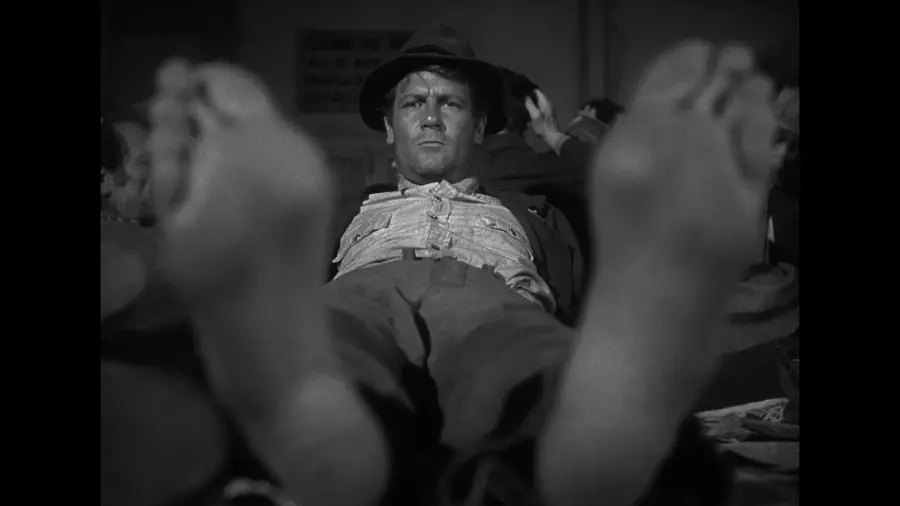




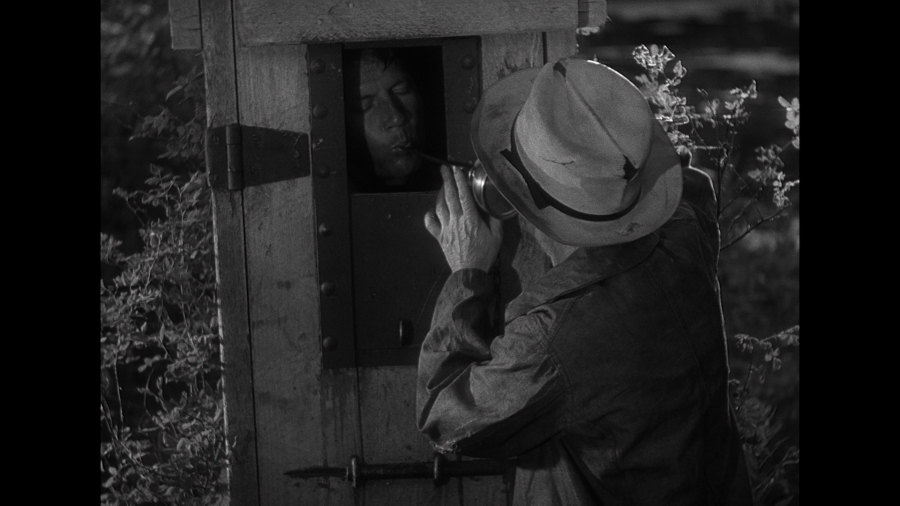





















Audio 7/10
Arrow presents the film’s mono track in lossless PCM stereo. Though some of the background music is flat and tinny, a product of its age, dialogue sounds surprisingly crisp and robust, very clear. The track has been cleaned up nicely and I don’t recall any pops or drops of any sort.
Extras 8/10
Arrow loads on a few supplements starting with an audio commentary by Terry Jones. It has a few dead spots and it sometimes sounds as though he’s struggling to say something just to say something, but overall he delivers a rather energetic commentary about the film’s style and the structure of its gags. Throughout he points out how elements of this film influenced some gags or elements of Monty Python’s works, from McCrea’s “crazed sincerity” influencing Graham Chapman’s king in Holy Grail or the “we’ve had sex twice and have two kids” joke in Meaning of Life. He breaks down sequences, shots, and montages, though occasionally just repeats what we see on screen. He closes off giving a brief overview of Sturges career after the film (this is covered a little more in-depth in other supplements on the disc.) Despite some hiccups to the track it’s still a very enthusiastic and entertaining one.
Arrow also presents the 75-minute documentary Preston Sturges: The Rise and Fall of an American Dreamer, which also appears on Criterion’s DVD release of the film. It’s a very thorough documentary using a mix of archival interviews, home movies, and newer interviews to lay out Sturges’ career and work, from his success to his rather sudden and steep fall within Hollywood (sped up during his brief partnership with Howard Hughes) and his late-in-life run in with the unforgiving IRS. It’s a nicely put together reflection on his career, moving at a nice beat and keeping it interesting.
English writer Kevin Jackson then talks about Sullivan’s Travels, and like Jones in his commentary talks about the structure of the film and its gags, the variety of characters—calling it the “most Dickensian” story not by Charles Dickens—and elements that were ahead of its time, like the film within a film element and its subtle ways of breaking the “fourth wall.” It’s an excellent analysis of the film and Sturges’ style, nicely accompanying Jones’ commentary.
The Preston Sturges Stock Company is a rather wonderful 46-minute visual essay covering most of the recurring actors that appeared in Sturges’ films. It begins with a general overview and then gives brief histories for a number of the performers and then presents a number of clips from the films they appeared in, most unfortunately sourced from DVDs (some really poor.) It’s a nicely assembled piece, feeling remarkably thorough considering the breadth of material. Excellently done.
Safeguarding Military Information is a 10-minute wartime “educational” film written by Sturges. It basically points out the dangers of military personnel or civilians inadvertently giving away secret information as presented in a couple of scenarios: 1.) a sailor explaining to his girlfriend over the phone that he can’t make a date because his ship is scheduled to depart as a man with a not-so-inconspicuous radio hangs out nearby or 2.) a mother reading a letter from her son deployed overseas to the local meat shop clerk while everyone listens in. It also helpfully tells you what to do when some random person comes up to you in a bowling alley and asks you out of the blue about that secret anti-aircraft gun you’re working on. Though the message is fine (“lose lips sink ships”) it’s still a somewhat unintentionally funny propaganda film, just a teeny bit over the top. As pointed out in the description in the booklet, though, it offers an early view to some of the staple Sturges elements that would appear in his films.
The disc closes with the trailer for Sullivan’s Travels. A nice 39-page booklet also comes with the release. It first includes an essay by Peter Swaab about the film and its longevity, followed by a great collection of snippets from reviews written about the film at the time, surprisingly not all are that favourable, but the best bit here would be a letter sent to Sturges from Walter White, secretary of the NAACP, thanking him for his representation of the black community in the church scene. There’s an excerpt on the film from Sturges’ memoirs, followed by his 11 rules for box success. Arrow also includes a reprint of a 1986 Sight & Sound article by Geoff Brown on Sturges’ inventor side, only touched on throughout the disc features but expanded nicely here. The booklet then concludes with notes on Safeguarding Military Information by Michael Brooke and then general notes about the aspect ratio and the release. It’s a nicely well rounded booklet, and an excellent accompaniment the rest of the material found on the disc.
Criterion’s DVD featured a few other supplements not found here but Arrow has done a rather commendable job here, giving a fantastic overview of Sturges’ life and career with some excellent analysis of the film.
Closing
A top notch release sporting a wonderful transfer and a great collection of supplements, it comes with a very high recommendation.






